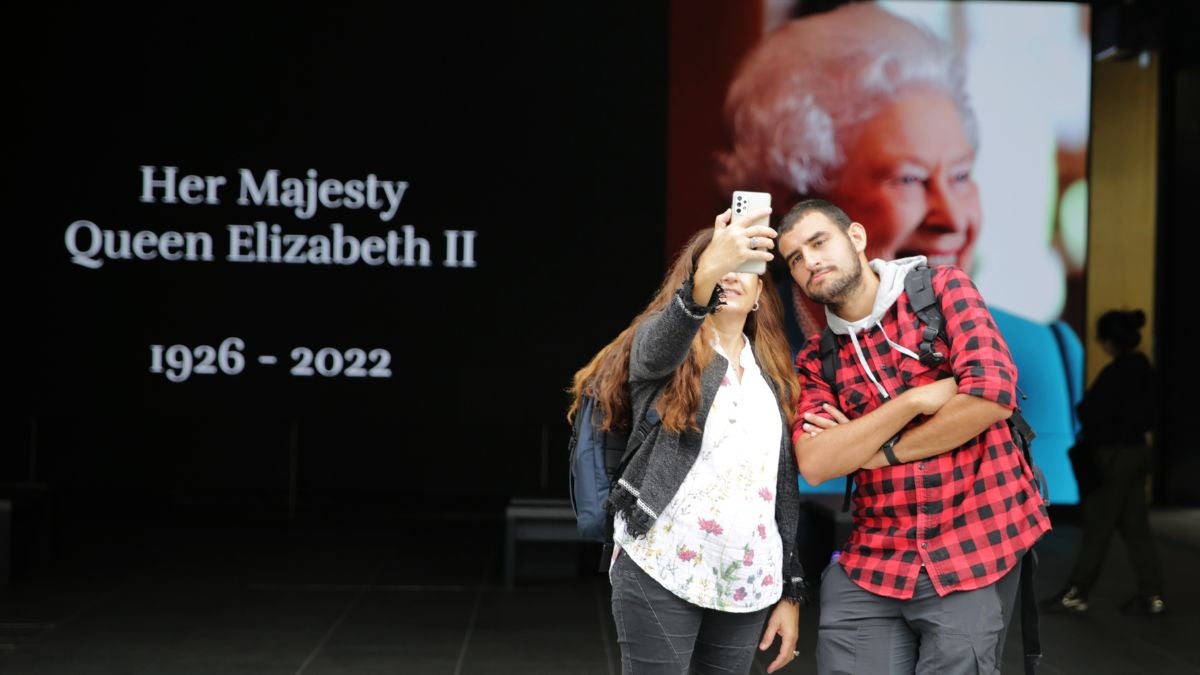
In the wake of King George VI’s death, all cinemas and theatres closed, sports fixtures were cancelled and flags were lowered to half-mast to reflect the mood of the nation.
Following the death of Queen Elizabeth II, many businesses have sought to pay their respects to the late British monarch through social media posts or by closing their doors on the date of her funeral.
In their eagerness to share in the nation’s grieving, however, brands risk sending out the wrong message. Take Ann Summers, whose hurried tribute to the Queen appeared above links to purchase sex toys and lingerie on its site.
Or CrossFit UK, which added a “one-minute rest in silence” to the “Queen Elizabeth II” workout routine it shared on Instagram hours after her death was confirmed.
The psychology of social media generates a need to be seen and, as the number of blacked-out logos on Twitter increased, the pressure grew for more companies to follow suit.
But, no matter how well-intentioned the tribute, companies must walk a fine line between deference and disrespect. Although toy manufacturer Playmobil may have considered its black and white picture of one of its figures dressed as the Queen a fitting homage, Twitter users labelled it “grotesque”.
Rest in Peace 🖤 Queen Elizabeth II 1926-2022 pic.twitter.com/eou217S8SZ
— PLAYMOBIL (@playmobil) September 8, 2022
If the message is misinterpreted, it can easily appear as though businesses are turning the Queen’s death into a marketing opportunity. According to a new YouGov survey, 58% of the British public say brand messages about the Queen are driven by PR reasons rather than a sincere desire to pay respects, while only three in 10 say it’s more likely that these messages come from the heart.
It raises the question of whether these brands even needed to share anything in the first place. While the Queen’s health wavered, was anyone left thinking, “I wonder whether Shrek’s Adventure! will pay a mark of respect?”
As one social media user said: “If I was a brand right now I would simply not tweet.”
In traditional media, many brands have taken the opposite approach, pulling advertising from printed papers and cancelling events. Papers and broadcasters took the decision to introduce an advertising blackout, while Burberry and Raf Simons have pulled out of their London Fashion Week shows.
If I was a brand right now I would simply not tweet
The actions of these businesses and the response of consumers show that, in certain circumstances, stepping out of the spotlight can generate the best PR.
This perceived need to be seen to be respectful has also jumped from the pages of social media and into the real world. Earlier this week, supermarket chain Morrisons pledged to turn down its checkout ‘bleeps’ in honour of the Queen and Centre Parcs announced it would be shutting its UK sites for the day of the state funeral.
Holidaymakers were quick to share their dismay at the company’s decision, which would have made it necessary for many to vacate the park for the night, only to return again the next day. Centre Parcs claims the gesture was “a mark of respect” but had to reverse its decision following the backlash from its customers. It leaves us questioning whether it was worth doing anything in the first place?
At this time, all people really want is for businesses to reflect the sombre mood of the nation. This could include cancelling a planned corporate party, postponing a new product launch or sharing fond memories of visits from the Queen. It doesn’t mean that Domino’s has to share its condolences with the Royal Family on Twitter.

In the wake of King George VI’s death, all cinemas and theatres closed, sports fixtures were cancelled and flags were lowered to half-mast to reflect the mood of the nation.
Following the death of Queen Elizabeth II, many businesses have sought to pay their respects to the late British monarch through social media posts or by closing their doors on the date of her funeral.
In their eagerness to share in the nation’s grieving, however, brands risk sending out the wrong message. Take Ann Summers, whose hurried tribute to the Queen appeared above links to purchase sex toys and lingerie on its site.
